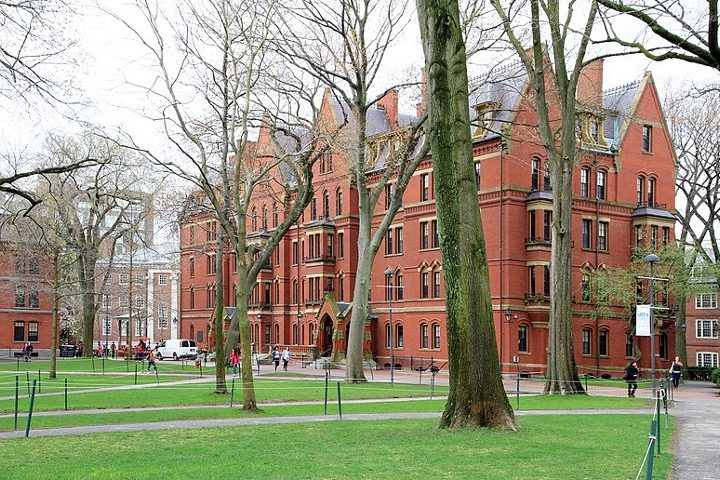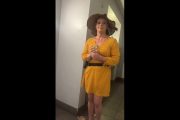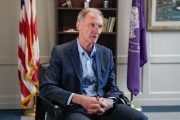
The most recent report from the Foundation for Individual Rights and Expression (FIRE) excoriates Harvard for its intolerance of speech that contradicts the school’s political ideology. From its report released on Wednesday (all emphasis in original):
In 2020, Harvard ranked 46 out of 55 schools.
In 2021, it ranked 130 out of 154 schools.
Last year, it ranked 170 out of 203 schools.
And this year, Harvard completed its downward spiral in dramatic fashion, coming in dead last with the worst score ever: 0.00 out of a possible 100.00.
This earns it the notorious distinction of being the only school ranked this year with an “Abysmal” speech climate.
And even its score of 0.00 is “generous”:
What’s more, granting Harvard a score of 0.00 is generous.
Its actual score is -10.69, more than six standard deviations below the average and more than two standard deviations below the second-to-last school in the rankings, its Ivy League counterpart, the University of Pennsylvania.
While the school professes to support “truth” — its motto is “Veritas” — its performance in seeking after truth through freedom of speech is “dismal”:
First of all, Harvard, which on paper commits to protecting free speech, has a dismal record of responding to deplatforming attempts — [defined as] attempts to sanction students, student groups, scholars, and speakers for speech protected under First Amendment standards.
Of nine attempts in total over the past five years, seven resulted in sanction.
Out of the 248 schools surveyed, which involved quizzing more than 55,000 students, Harvard leads the list of the worst five in quashing freedom of speech. Fordham University earned a “Poor” speech climate rating, while Georgetown University, the University of South Carolina, and the University of Pennsylvania each earned a “Very Poor” rating.
Among the bottom five there were 32 “deplatforming attempts” and 26 actual sanctions imposed for those attempting to exercise their First Amendment rights, either on campus or in their writings.
Harvard shares its ignominy with other liberal colleges, according to FIRE:
It is also clear that some schools possess poor speech climates, as evidenced by their consistently mediocre-to-poor performance in the College Free Speech Rankings.
This list includes Harvard, which recorded the worst performance possible this year, continuing its pattern of poor performances in previous years.
It also includes Georgetown University and the University of Pennsylvania, both of which finished in the bottom five last year and this year.
Finally, it includes Rensselaer Polytechnic Institute, Marquette University, Middlebury College, and Fordham University, all of which are never far from the bottom of the rankings.
FIRE makes it clear that while these institutions of higher learning are largely kowtowing to the current political climate, they are also responding to the ideology of the students entering from public and private schools. The report concluded:
These findings about intolerant and disruptive conduct and self-censorship suggest a pervasive national climate of worry and discomfort on American college campuses.
This should concern anyone who supports a vision of higher education as a free marketplace of ideas meant to produce graduates who are ready to join the vigorous debates within American society and beyond.
Too many colleges are acquiescing to demands to deplatform students, scholars, and speakers on campus, perpetuating a climate hostile to free expression.
According to the FIRE study, more than half of students on campus worry about “getting canceled” for speaking out against the grain, while more than one in four believes violence to suppress speech they dislike is acceptable.
Harvard isn’t the only institution sanctioning speech it doesn’t like. According to FIRE, 145 professors were targeted for sanction in 2022 alone.
To their credit, more than 100 Harvard professors have belatedly begun to push back against the school’s intolerance of unapproved speech. In April they formed the Council on Academic Freedom (CAF) at Harvard, which states on its website:
The Council on Academic Freedom is a faculty-led organization dedicated to promoting free inquiry, intellectual diversity, and civil discourse at Harvard University.
Its more than 120 faculty members represent dozens of departments and every one of Harvard’s schools.
One of the council’s members, James Engell, professor of English and comparative literature at Harvard, wrote from his own experience on campus:
At times, the values of free speech and academic freedom appear to be made subservient to other institutional values.
What is a member of the University to do who holds a view that, in the judgment of some, does not align with—or even runs counter to—what University administrators declare are the “abiding values” or the “essential values” of the institution?…
Many faculty believe that a colleague who holds even one dissenting view—though that individual may agree with almost all other “abiding values” of the institution—will not be asked to sit on key committees let alone chair one; will not be asked to chair departments; if, in a ladder-rank, untenured appointment, will jeopardize promotion; and may not receive certain awards or perquisites given to faculty who actively promote the “abiding values” of the University. [Emphasis in original.]
He is not alone in his perception of limitations placed by Harvard on such dissents and dissenters:
This belief may very well be mistaken, but the fact that some faculty hold it is indication enough that academic freedom and free speech are under stress.
Should not academic freedom and free speech be truly foundational, the most abiding and essential of values, not ever to be trumped or silenced by other values unless defamation or slander are being expressed? [Emphasis in original.]
All very good questions, questions which Harvard and other college and university administrators must address, or they will lose whatever present standing they might have among potential high school students seeking to excel. CAF’s co-founder, psychology professor Steven Pinker, put it bluntly:
Eternal vigilance is the price of liberty, and if we don’t defend academic freedom, we should not be surprised when … a disgusted citizenry writes us off.



